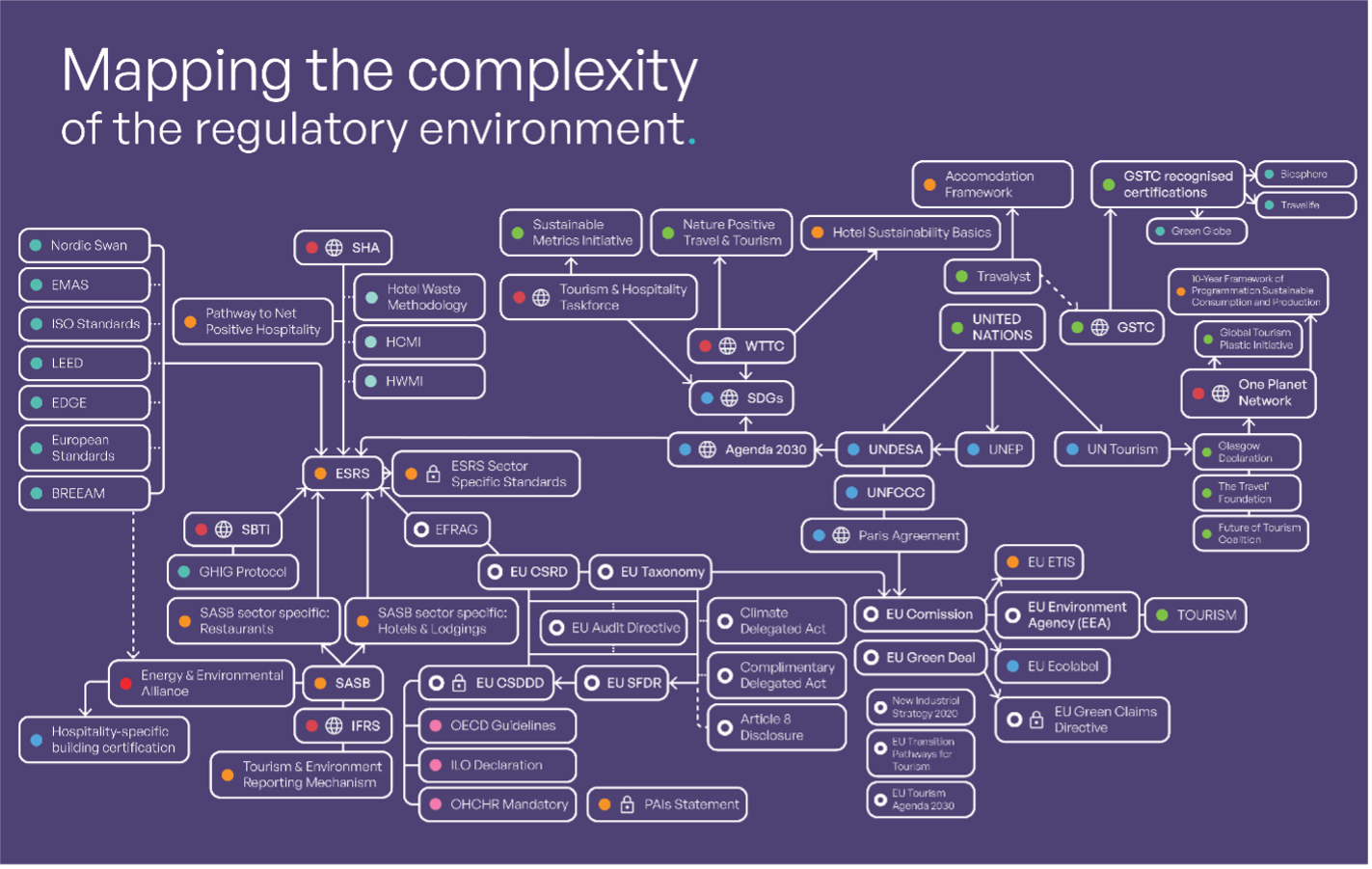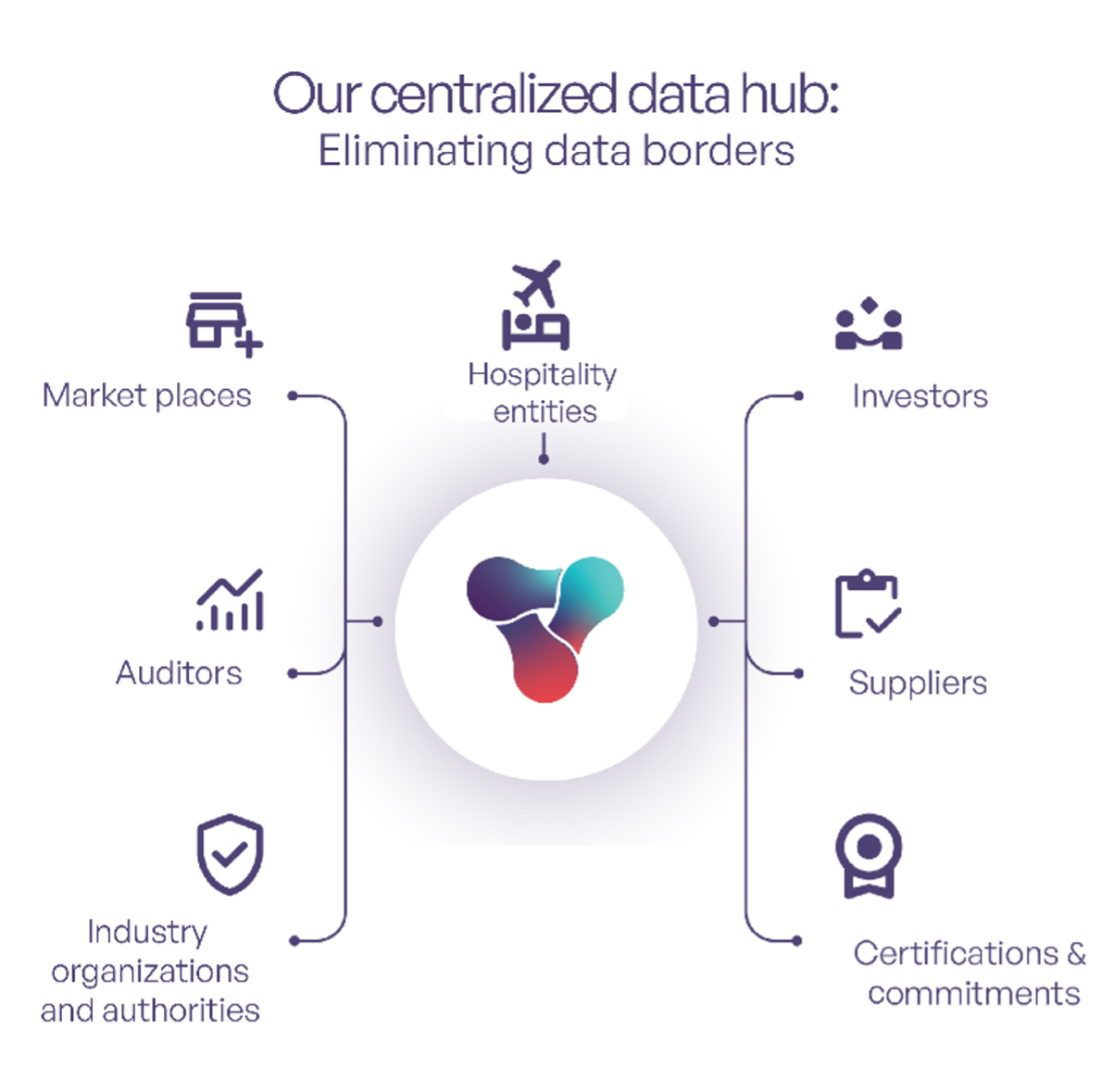Sustainability without borders


Synopsis
In today's hospitality industry, hotels face mounting pressure to align their operations with global sustainability goals, local legislation, industry standards, and stakeholder expectations. The complexity of sustainability compliance stems from the multitude of regulations, certifications, and frameworks that require thorough analysis and a clear understanding of their interconnections. Adding to this challenge, compliance must be data-driven, with a solid audit trail substantiated by robust methodologies.
Sustainability without borders is the vision the hospitality industry must embrace to drive meaningful change. The industry is one of the most diverse and fragmented sectors, encompassing independent hotels, chains, destinations, suppliers, travel agents and booking platforms, all of which operate under different sustainability frameworks and regulations. Each stakeholder has unique data requirements, making standardization a challenge. True sustainability knows no boundaries—it spans various ESG factors, including energy consumption, water usage, waste management, carbon emissions, employee satisfaction and social responsibility initiatives. Effectively addressing these areas requires specialized knowledge, advanced tracking mechanisms, and comprehensive reporting strategies—often overwhelming for hotels attempting to navigate the landscape.
Navigating the complexity
Given this complexity, where should hotels start? As sustainability gains traction and legislative demands increase, compliance remains the most logical entry point. Hotels must assess local regulatory requirements; with EU legislation often serving as a benchmark for global best practices. However, compliance alone is not enough. Many regulatory demands overlap with broader organizational and stakeholder expectations, meaning hotels must also engage with global and local sustainability organizations for guidance.
For instance, UN Tourism promotes sustainable tourism as a driver of economic growth and environmental responsibility, while the World Sustainable Hospitality Alliance (WSHA) supports ESG compliance, industry collaboration, and innovation. These organizations serve as valuable resources, equipping hotels with the necessary tools to develop strong sustainability strategies. By leveraging these global resources, the hospitality industry can build a borderless network of sustainable best practices. To be effective, these strategies must be grounded in data-led management, ensuring that performance is measurable, credible, and aligned with recognized methodologies.

The need for unified solutions
Yet, despite the wealth of resources available, the industry struggles with fragmented sustainability data scattered across multiple sources and formats. This lack of standardization makes it difficult to extract insights, track progress, implement meaningful improvements, and benchmark performance. Ultimately, while sustainability data should facilitate progress, it often becomes a burden due to disconnected reporting systems and excessive administrative workloads. A roadblock to progress.
A world without sustainability borders requires unified data solutions. A unified data management platform is essential to breaking these silos, enabling seamless information exchange between hotels, destinations, marketplaces, and certifiers, and freeing up time for impactful sustainability initiatives, which can contribute to Net Zero by 2050.
Eliminating data borders
This is where BeCause enters the ecosystem, streamlining sustainability data management through a centralized platform. By consolidating data, BeCause enables seamless information exchange among hotels, booking platforms, suppliers, and destinations, ensuring that sustainability efforts are not only encouraged but also efficiently executed.

By eliminating data borders, BeCause’s centralized data hub allows the industry to work together as a cohesive ecosystem. As a leading industry player, BeCause integrates legislative requirements, industry best practices, digital sustainability management tools, tourism-specific frameworks and information exchange capabilities into a single hub. This approach eliminates redundancies, enhances data interoperability, and fosters a transparent and efficient sustainability operational environment.
BeCause simplifies reporting, enhances credibility, and reduces administrative burdens, driving wider certification adoption across the industry.
Automated data synchronization minimizes manual reporting efforts, improves accuracy, and strengthens compliance with global ESG frameworks, making sustainability management more effective. Integrated sustainability data into all project management, unlocks actionable insights, empowering organizations to make strategic, data-driven decisions at scale. Moreover, by embedding real-time data into procurement and booking systems, hospitality marketplaces can drive systemic change, shifting industry standards toward more responsible operations. Policymakers and tourism boards can leverage this centralized data to promote greener tourism, enhance destination branding, and align with regulatory requirements.
The future of hospitality lies in breaking down data silos and fostering an interconnected industry where sustainability data becomes a fundamental driver of decision-making. Sustainability without borders is more than a concept—it is a movement that unites the hospitality industry in a shared mission. Through a platform like BeCause, hotels, marketplaces, and destinations can collaboratively build a more responsible and transparent, future—one where sustainability is seamlessly integrated into operations, compliance is simplified, and positive impact is maximized.